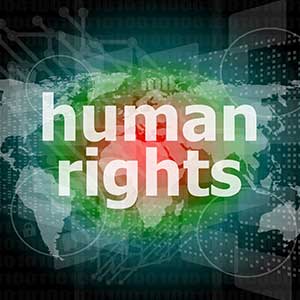BUSINESS AND HUMAN RIGHTS WHITHER THE FUTURE
March 2015
James Kallman, president director of Moores Rowland Indonesia a member firm of Praxity, argues in favour of the development of human rights reporting standards for businesses.
Fifty years ago it was all about the bottom line. Today, however, it's not just about the quality and price of goods and services; it's also about how a business shows itself to be sustainable, meaning how meets its human rights responsibilities to its workers, customers and the community at large.
In 2011, the United Nations Human Rights Council unanimously endorsed the UN Guiding Principles on Business and Human Rights (UNGP) and yet four years on, their widespread implementation is still a painfully slow process. In Indonesia for example, over 1,000 business-related human rights violations are reported to the National Commission on Human Rights each year. Worryingly, few cases are comprehensively resolved and as in medicine, wounds left unhealed can deteriorate into far more serious conditions.
While respect for human rights should be the universal basis for all aspects of life, there are global differences in perceptions of what is acceptable. For example, children joining their mothers in the fields after school would be viewed in a different light in Europe than in parts of Asia, as would the thorny problem of child labour balanced against the right to exist. Indeed, on occasions opposing answers come from Europe and Asia as to whether the human rights of the individual or the community should predominate.
So when we're talking about human rights, it's not just about complying with specific laws but rather acting in a responsible manner - the judgement of which is particularly well-suited to an audit approach, as are the issues of consistency and comparability. Yet even auditors need to work to standards.
The lack of such tools to help both auditor and business entity is a major reason why progress has been so slow. Much talk has been expended on reaching consensus on how the UNGP should be applied, largely aimed towards multinational giants who can afford to dedicate staff and funding to ensure their operations do not negatively impact on the rights of others. Yet even theirs is a far from untroubled journey. With supply chains often numbering in the thousands across the globe they are painfully aware that when it comes to human rights, one size does not fit all.
Without decrying these efforts, the cost of 'knowing and showing' as envisaged by the Guiding Principles can be beyond the pockets of SMEs. This is contrary to the UNGP, which clearly point to a global process applicable across the whole spectrum of business. There is thus a need for a disciplined approach to reporting and assessment that is cost-effective and usable for all entities; from the global conglomerate to the corner shop. This has been my contention since the early days of developing the MIHRSC indicators.
The first priority is to determine those areas most likely to give rise to human rights impacts. The environment, land rights, security and supply chain tend to be to the fore in the extractive industry, for example, while in manufacturing it's product quality and labour rights. These are only indicative, however, and vary widely across business sectors and individual companies. Businesses must therefore, have in place robust human rights policies that enable them to determine their own particular areas of human rights susceptibility while being aware of the wider picture. Included in these policies must be a system of due diligence, a system of remediation for any human rights impacts with which the company may be involved, and a system for reporting its human rights record.
Experience has taught us that while a general standard can be targeted to address specific areas, there's a case for developing individual standards for specific industries as with other forms of audit. We're currently pursuing this approach with governmental departments in Indonesia and believe much is to be gained from working with national and local governmental authorities, as well as businesses and social society groups. Such interaction has already widened our remit. To mark the 60th anniversary of the 1955 Asia-Africa Conference to be held in Bandung, Indonesia in April, the city's mayor has proclaimed Bandung a Human Rights City.
Working with the Association For International Human Rights Reporting Standards (FIHRRST), we are helping the city prepare its Bandung Charter, a bottom-up approach very much in line with the UN White Paper on Human Rights Cities.
This will not be just another set of lukewarm articles proposed by the city government for self-aggrandisement, but carefully compiled rights and responsibilities based on inputs from citizens and other stakeholders, including businesses. Moreover, the city will be subject to assessment against its Charter by a certified independent assessor.
Bandung may not be the first to declare itself a Human Rights City, but it is the first to be inclusive in its approach and submit itself to the transparency and accountability of regular monitoring and third- party certification. The Conference will be attended by representatives from over 100 nations, Western observers joining delegates from Asia and Africa, and it is hoped that unveiling the Bandung Charter will encourage those present from other cities to take up the baton and advance the cause of human rights.
Setting standards to live by at city level and verifying compliance is part of the drilling down of the whole human rights concept that began with the Universal Declaration of Human Rights in 1948. For business and human rights, however, the journey will only be complete when we have realised the dreams of the original signatories.
This news was published on http://www.internationalaccountingbulletin.com/comment/business-and-human-rights-whither-the-future-4540284/


